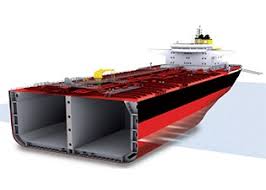
Basic Oil Tanker Familiarization (OTF)
Beginners Courses
|
3 days
|
English
|
OnsiteDescription
The Oil Tanker Familiarization course is designed to provide mariners with the fundamental knowledge and skills required to work on oil tankers safely and efficiently. This course covers various aspects of oil tanker operations, safety protocols, and regulatory requirements. Here’s an overview of the key components typically included in an Oil Tanker Familiarization course
Course Curriculum
1. Introduction to Oil Tankers
- Types and sizes of oil tankers.
- General layout and design of oil tankers.
- Terminology and definitions specific to oil tanker operations.
2. Cargo Handling and Operations
- Principles of oil cargo handling.
- Loading and unloading procedures.
- Tank cleaning and gas freeing.
- Use of cargo handling equipment and systems.
3. Safety and Fire Prevention
- Fire hazards associated with oil tankers.
- Firefighting systems and equipment on oil tankers.
- Fire prevention measures and protocols.
4. Pollution Prevention and Environmental Protection
- Sources of pollution from oil tankers.
- Procedures for preventing oil spills and pollution.
- Use of oil spill response equipment.
- Compliance with MARPOL regulations and other environmental standards.
5. Tank Atmosphere Control
- Inert gas systems and their operation.
- Ventilation and gas freeing procedures.
- Monitoring and controlling tank atmospheres.
6. Health and Safety
- Personal protective equipment (PPE) and its use.
- Health hazards associated with oil cargoes.
- Safe work practices and safety culture on oil tankers.
7. Emergency Procedures
- Emergency response plans and drills.
- Procedures for dealing with oil spills, fires, and other emergencies.
- Use of emergency equipment and systems.
8. Regulatory Framework
- International regulations and conventions governing oil tanker operations.
- Flag state and port state control requirements.
- Certification and documentation required for oil tankers.
9. Case Studies and Practical Exercises
- Analysis of past oil tanker incidents and accidents.
- Lessons learned and best practices.
- Practical exercises and simulations to reinforce learning.
Practical Training Components
- Simulations and Drills: Hands-on practice with cargo handling, emergency response, and pollution prevention.
- Equipment Familiarization: Training on the use and maintenance of tanker-specific equipment and systems.
- Scenario-Based Training: Real-life scenarios to practice safe operations and emergency response.
Learning Outcomes
Upon completion of the Oil Tanker Familiarization course, participants should be able to:
- Safely perform basic operations on an oil tanker.
- Understand and implement safety and pollution prevention measures.
- Respond effectively to emergencies involving oil cargoes.
- Comply with international regulations and standards for oil tanker operations.
- Promote a safety culture and environmental stewardship on board.
Certification
Participants who successfully complete the course typically receive a certificate of completion, which may be a prerequisite for working on oil tankers and for further specialized training.
Conclusion
The Oil Tanker Familiarization course is essential for mariners who intend to work on oil tankers. It provides the foundational knowledge and skills necessary to operate safely and efficiently while ensuring compliance with regulatory requirements. The course emphasizes safety, environmental protection, and the importance of adhering to best practices in tanker operations.
- Category Beginners Courses
- Language English
- Duration 3 days
- Level Intermediate
- Assessments Yes
Reviews
4.5
Limited Time Offer